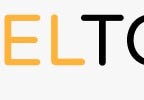Advantages of Blockchain for Health Data: Part 1
The blockchain era has already begun. Taking into account the fast progress in the development of new and more efficient healthcare record systems, wearable devices, and medical examination systems implementing artificial intelligence, cryptography will become an important part of the way hospitals work. There are, however, a few improvements still needed in order for seamless blockchain adoption across the entire medical industry. According to Hyperledger’s survey, 42.9% of healthcare organizations suppose that the interoperability of electronic health records will help for faster blockchain implementation; with 28.6% of respondents ready to use this technology in care settings today. So, what are the benefits of blockchain technology in healthcare?
Data Provenance and Integrity
With an ongoing increase in patient numbers, healthcare providers have to manage more and more health data on a regular basis. As the data volume increases each year, it becomes harder for hospitals and clinics to process and store information.
Data managed by medical organizations includes:
· Patient health information (PHI);
· Electronic health records;
· Data collected from IoT devices (Internet of Things) or monitoring systems; and,
· Medical insurance claims.
Secure information sharing methods, which allow both healthcare providers and their covered entities to verify the correctness of data, are crucial for ensuring proper medical services. This is where blockchain comes in useful, as one of its main advantages is data integrity. When information is recorded and encrypted, it becomes impossible to change or remove.
One of the blockchain approaches that allows for the secure recording and sharing of information is anchoring data to the public blockchain. This method involves generating a proof of data integrity. Using this proof, any user can verify the data timestamp without the need to rely on third-parties. This method allows users to:
· Verify PHI integrity;
· Perform unchangeable medical audits;
· Prove the integrity of clinical research results;
· Reduce audit expenses and ensure regulatory compliance; and,
· Ensure data safety.
HIPAA requires the usage of safe methods of communication between those who deal with PHI stored in electronic form. That is why data encryption plays a crucial role in ensuring data privacy and safety. Our team has a deep expertise in developing digital solutions for the healthcare industry. One of our projects is a HIPAA compliant online communication platform called MDChat that allows patients to securely communicate with medical employees and be sure they are protected from any hacker attacks.
More Secure Standards
Blockchain provides a more secure way to protect data than ordinary encryption. The new technology allows for the implementation of new standards in managing insurance claims, PHI, and medical records. It excludes intermediation in data sharing, when using blockchain. Such consortiums as Hyperledger help increase awareness of the advantages of cryptography and further explain how to use blockchain in healthcare.
According to the survey mentioned above, the main reason why medical organizations hesitate to use blockchain is the lack of knowledge around this technology. A quarter of respondents are still at the stage of education and exploration, which is why responsible state organizations should make the corresponding information more widespread among caregivers. Healthcare providers suppose that this technology must pass several milestones before any adoption is possible, including:
· Technical proof of concept (PoC) (65.4%);
· Security proof (38.5%);
· Privacy proof (34.6%); and,
· Regulatory approval (23.1%).
We can spend a lot of time wondering why caregivers hesitate to implement blockchain in their organization, though the answer is far simpler than it may seem: they simply do not know enough about this technology and its advantages.
Data Transparency
Besides disintermediation, data integrity and provenance, healthcare providers see transparency (55.2%) as one of the top advantages of using blockchain in their industry. To better understand this aspect, let’s consider how it works in the financial sector.
This technology provides a decentralized register of ownership by recording every transaction made through the system. It stores all details starting from the formation of a data block, and ending with any digits related to a specific transaction. Every device that is a part of the system stores a copy of this block. Before making a transaction, the system confirms whether a blockchain version coincides with another in the network. Therefore, each blockchain user can identify the owner of a particular data block at any time. Furthermore, the blockchain is not only a secure way to send money, but a fully protected data sharing method that widens its potential use in healthcare.
We’ll discuss the problems and blockchain based solutions in the next blog so stay tuned!
